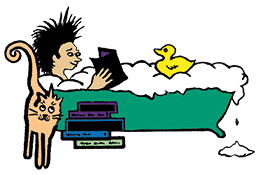Group Cognitive Therapy for Addictions
Author(s): Amy Wenzel
Addiction | Cognitive Behavioural Therapy
This pragmatic guide - from a stellar team of authors including Cognitive Therapy originator Aaron T. Beck - describes how to implement proven cognitive and behavioral addiction treatment strategies in a group format. It provides a flexible framework for conducting ongoing therapy groups that are open to clients with any addictive behavior problem, at any stage of recovery. Practical ideas are presented for optimizing group processes and helping clients build essential skills for coping and relapse prevention. Grounded in decades of research, the book features rich case examples and reproducible clinical tools that can be downloaded and printed in a convenient 8 1/2" x 11" size.
Product Information
"Both novices and experienced professionals will find a clinically sound, theoretically supported, and empirically grounded model of group therapy for people struggling with addictions. Strengths of this reader-friendly treatment guide include clinical illustrations; clear and informative figures, tables, and forms; and cognitive case conceptualizations that illustrate how to apply cognitive theory to individual group members and the group as a whole. The authors do a superb job of translating theoretical and empirical knowledge into practice principles. This is a first-rate book that will be a welcome addition to the libraries of addictions professionals." - Meredith Hanson, Fordham University, New York, USA
"This book describes what a cognitive model of addiction looks like and presents a clear rationale for an open-ended group. Clients are encouraged to discuss their challenges, with a strong focus on achievable changes that they can implement. The cognitive model guides rather than drives the discussion. This team of authors knows the field very well, and the book is well illustrated with excellent practical examples. This book has real depth. It is an admirably clear call to skilful practice." - Stephen Rollnick, Cardiff University, UK
Amy Wenzel, PhD, is a Clinical Associate in Psychiatry at the University of Pennsylvania School of Medicine, USA. She is the recipient of awards from the National Alliance for Research on Schizophrenia and Depression, the American Foundation for Suicide Prevention, and the National Institutes of Health. Dr. Wenzel lectures and provides training and consultation in cognitive-behavioral therapy nationwide Bruce S. Liese, PhD, is Professor of Family Medicine at the University of Kansas Medical Center, USA, where he has taught and practiced psychology for more than 25 years. He is a recipient of the Presidential Citation for Distinguished Service to the Society of Addiction Psychology (Division 50 of the American Psychological Association) Aaron T. Beck, MD, is University Professor Emeritus of Psychiatry, School of Medicine, University of Pennsylvania, USA, and the founder of cognitive therapy. Dr. Beck is the recipient of numerous awards, including the Albert Lasker Clinical Medical Research Award, the American Psychological Association Lifetime Achievement Award, the American Psychiatric Association Distinguished Service Award, the Robert J. and Claire Pasarow Foundation Award for Research in Neuropsychiatry, and the Institute of Medicine's Sarnat International Prize in Mental Health and Gustav O. Lienhard Award. He is President of the Beck Institute for Cognitive Behavior Therapy and Honorary President of the Academy of Cognitive Therapy Dara G. Friedman-Wheeler, PhD, is Assistant Professor of Psychology at Goucher College in Baltimore, Maryland, USA. Dr. Friedman-Wheeler has received several awards from the National Institutes of Health. Her research interests are in the areas of coping, affect regulation, outcome expectancies, mood disorders, and health behaviors/outcomes
Part I: Background. Scope of the Problem. Theoretical Framework: A Comprehensive Cognitive Model of Addiction. Theoretical Orientation: Group Therapy and the Stages-of-Change Model. Overview of the Cognitive Therapy Addictions Group (CTAG). Cognitive Case Conceptualization. Part II: Cognitive Therapy Addictions Group Session Components. Introductions. Evaluating Thoughts and Beliefs. Developing Coping Skills. Homework and Closure. Part III: Summary and Integration. Conclusion: Implementing the Cognitive Therapy Addictions Group.
General Fields
- :
- : Guilford Publications
- : Guilford Publications
- : 01 July 2012
- : United States
- : 01 December 2013
- : books
Special Fields
- : Amy Wenzel
- : Hardback
- : 616.860651
- : 276
- : Illustrations


